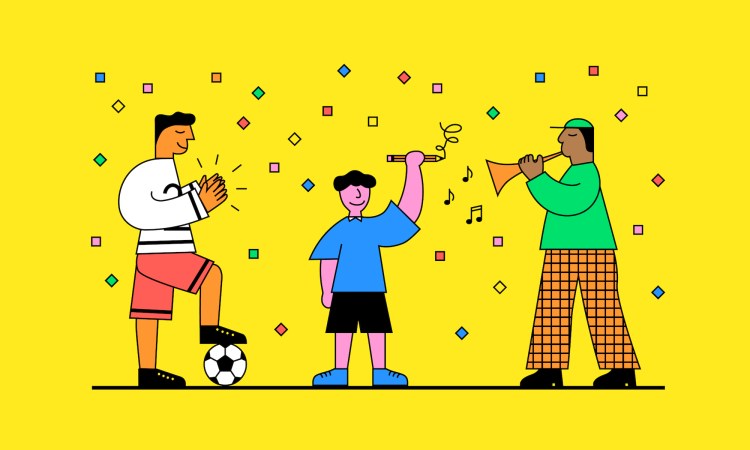
Let’s celebrate boys for their abilities, values and passions, and show them that their character matters more than their height, says rapper and poet Meta Sarmiento.
This post is part of TED’s “How to Be a Better Human” series, each of which contains a piece of helpful advice from someone in the TED community. To see all the posts, go here.
I was born and raised on the island of Guam. An unincorporated territory of the US, Guam is located in Micronesia. One of the first things I learned in kindergarten was that you couldn’t find Guam on a globe without using a magnifying glass. Imagine a half-grown child, standing on shore, staring at the expansive horizon and realizing a single grain of sand is bigger than his home on a map.
Now I’m not that half-grown child anymore. I’m more like a half-grown adult — I’m 5’5” when I got my shoes on.
When you’re a tiny kid who grows up in a tiny house on a very small island, you naturally start to feel how big the rest of the world is. In a society that emphasizes the enormity of things, being little can be a huge hurdle. At school, the bigger kids roughed me up because they could.
It began innocently enough — can’t get on the roller coaster because I’m too short, can’t join my division in football because I’m too light, can’t date girls in heels. But, then, life got more complicated — can’t defend the people I love, can’t speak my mind because I’m too afraid, can’t compete with others in my field of work on a global scale.
Everything I learned taught me that size will always be the final measurement of strength. How could little old me ever be strong? I carried that question with me, and at every turn I heard the same answer — a voice saying, “You’re too weak.” Eventually, that voice started screaming, “You will never be good enough for anyone or anything,” and I believed it.
I felt hopelessly weak for a long time until my sister gave birth to Elijah, her first son and my eldest nephew. Everyone in my family says he reminds them of me. He’s musically inclined, he loves to read, he’s emotionally intelligent — and he’s also really small.
So when I started seeing myself in him, I grew worried. I didn’t want him to harbor the same self-doubts or feel hopelessly weak, but I knew it was inevitable. I wanted to be that super-awesome uncle who could help him through it all, but how could I do that if I was stuck in the same place?
Eli was my motivation to figure things out. One of the most important things I did was ask myself: “In what other ways am I strong?”
I realized that we need to stop portraying boys’ strength in such a limited way. We need to stop focusing on mass alone — the extent of one’s strength should not be determined solely by one’s size. Why? Because we are so much more than a push or a pull or a fist and a body.
If we can teach young boys at an early age to look beyond their physical attributes and to look inward to reflect on their abilities, their values, their passions and their knowledge, we might have a world full of boys and men who are less obsessed with proving strength through how much space they occupy, control or destroy.
I viewed myself as this tiny kid from this tiny island, when I should have been viewing myself as a young man from Micronesia, a region rich with culture, talent and perseverance.
And I should have seen that right next to Guam is the Marianas Trench, the deepest place on this planet. It’s a world so submerged and unexplored that we’re only just beginning to understand what’s inside of it. I think that’s how we should view strength — true strength is defined by the depths of our character and our potential.
This piece was adapted from his TEDxMileHigh talk. Watch it here:














